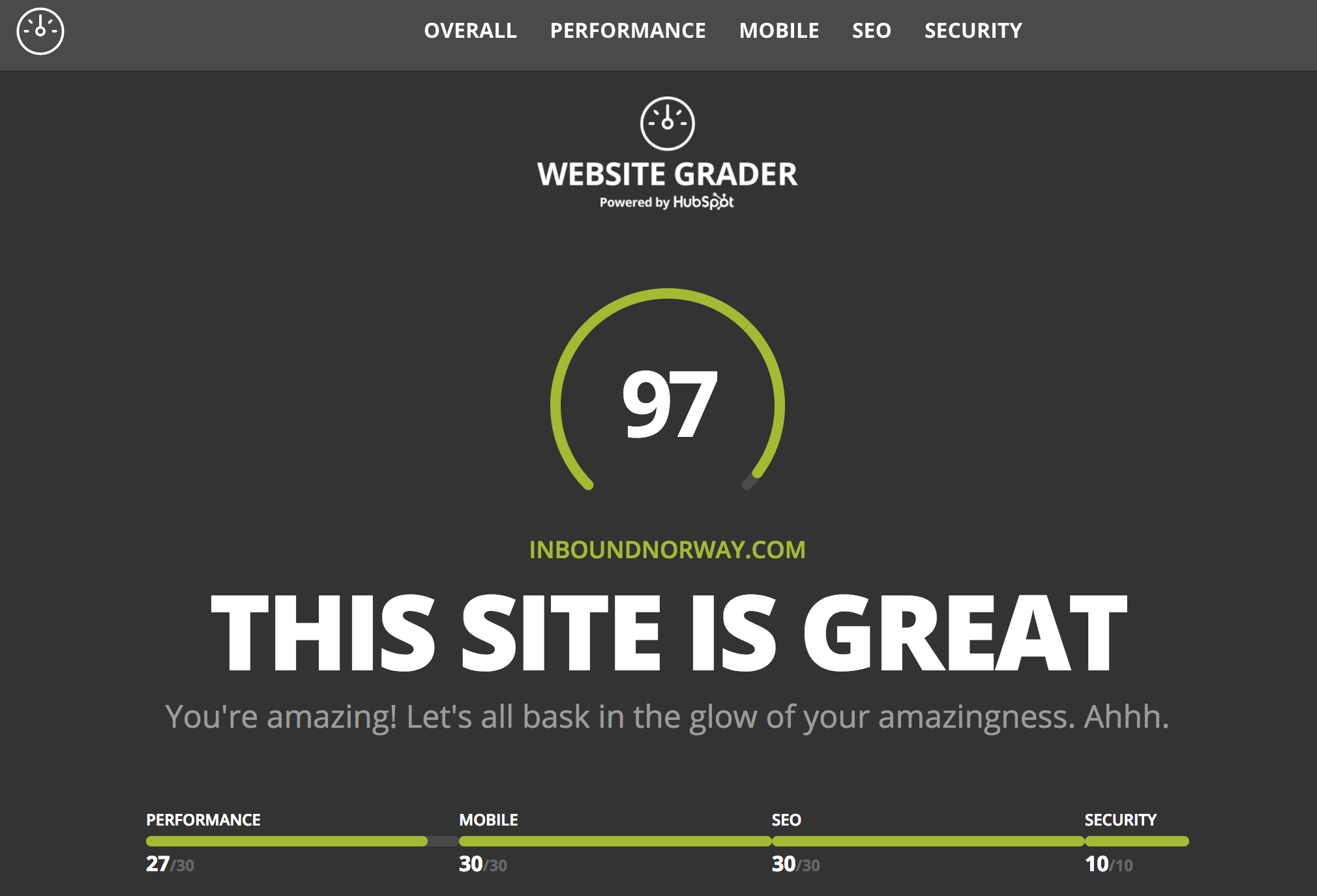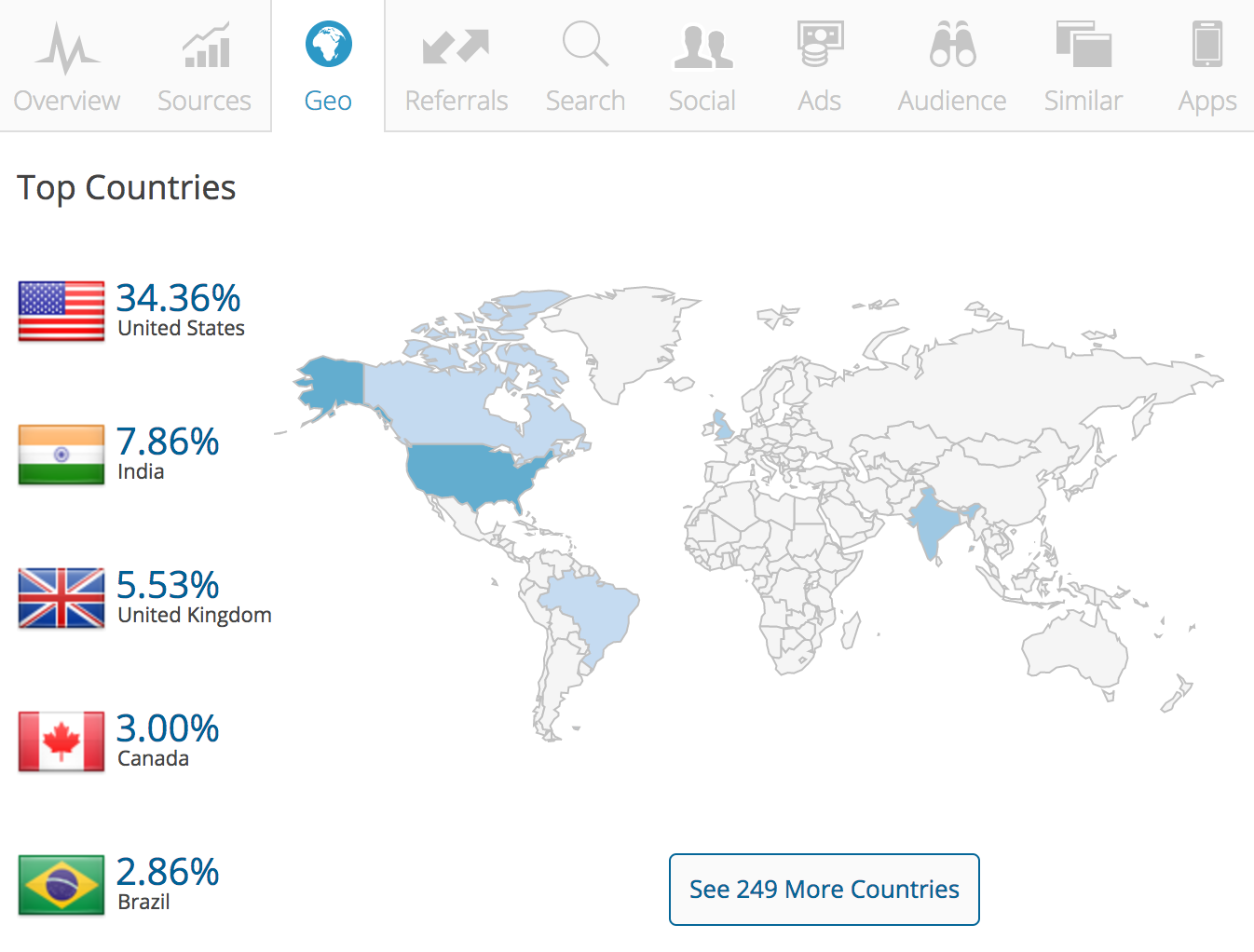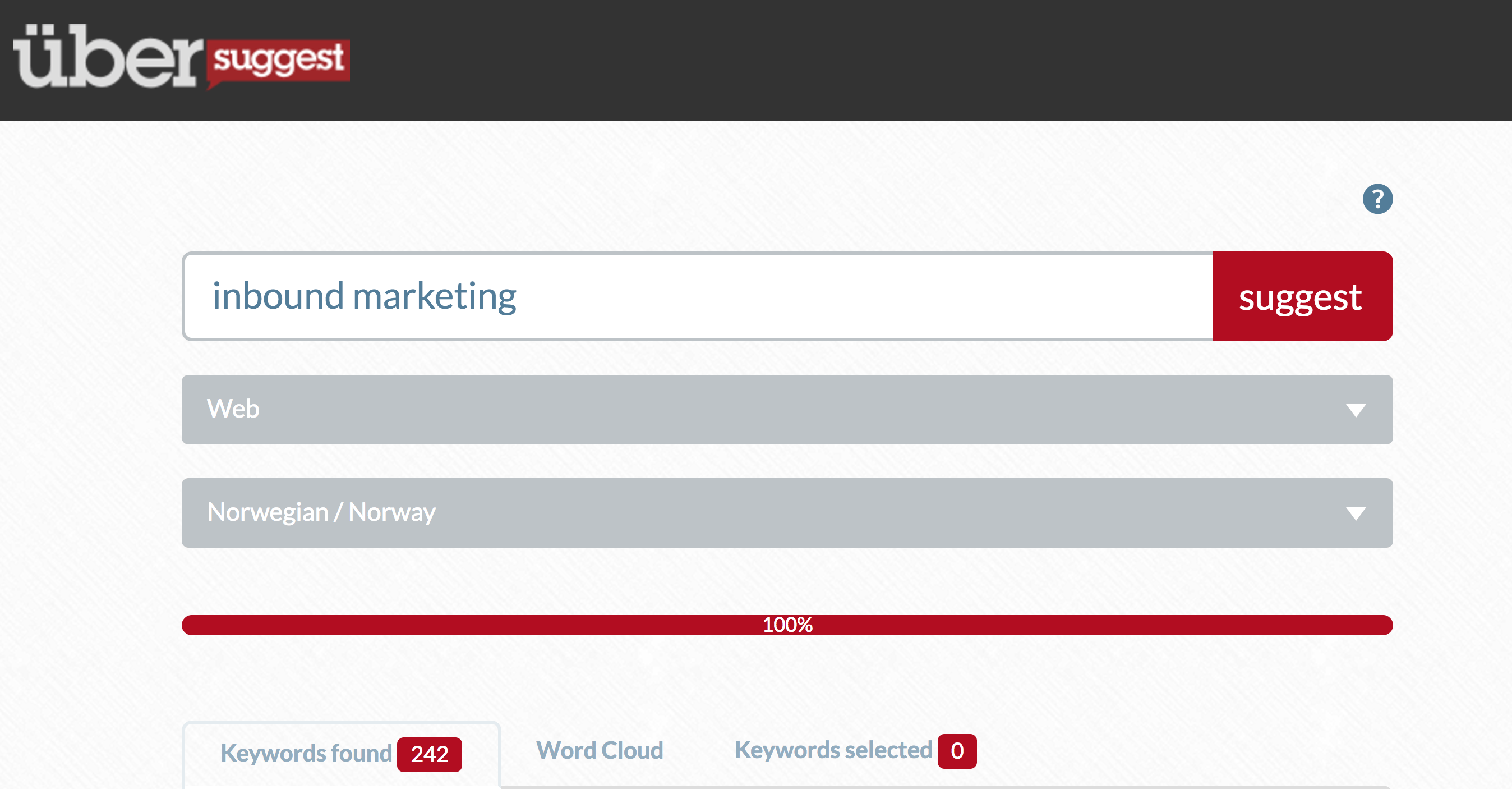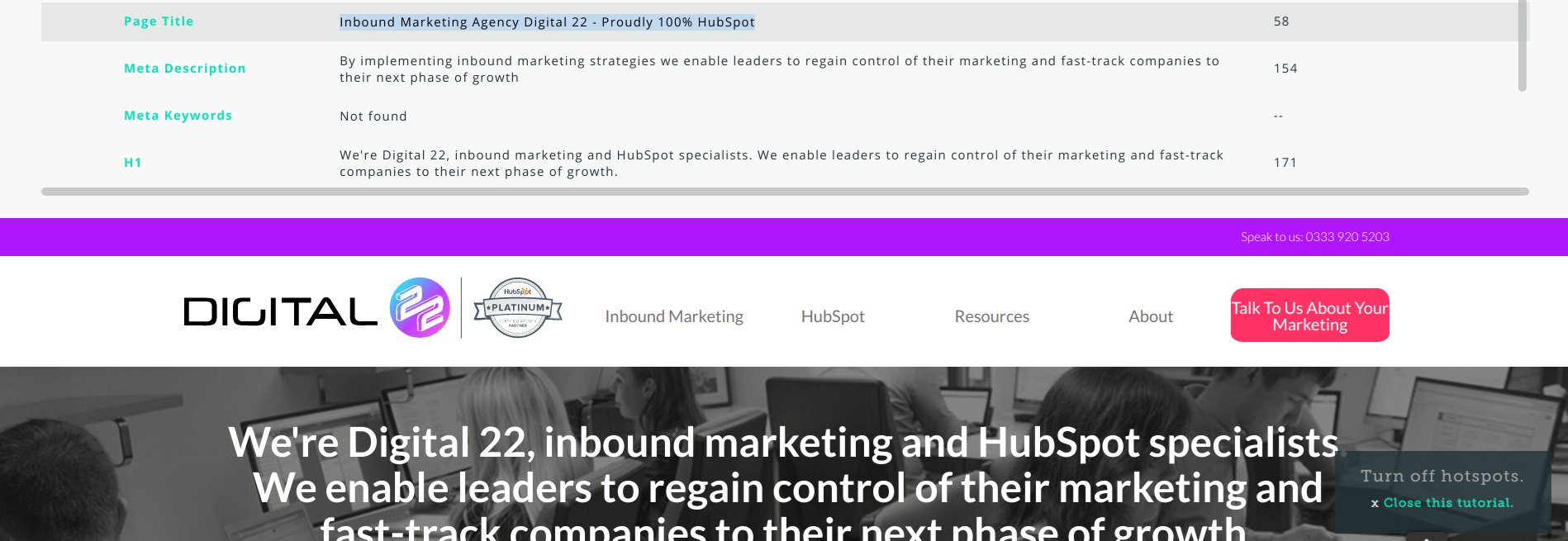Before we answer the question of how you can stand out among the many search results in Google and...
You have probably seen a lot of articles telling you how to improve your SEO strategy. But how do you get started?
It can seem both confusing and overwhelming. How do you do keyword analysis? How do I find the data to either prove or disprove my assumptions? Who can tell me if my website is good enough without us spending our entire marketing budget?
Lucky for us working in marketing, there are a lot of great tools out there that are free to use and that can get you pretty far on your own. In this article, we give you our 7 favourites.
1) Website Grader
This is a free tool that takes a look at your website and gives it a grade from 0-100. The service is developed by HubSpot and the score is given based on performance, SEO, mobile optimization and security. All you need to do is enter your URL and it will tell you what areas you need to improve.

We see a lot of websites having too many page requests, impairing the website’s performance. You will also lose points if your website does not have an SSL certification or if you have not got meta descriptions in place.
2) SimilarWeb
Do you wish you had access to your competitors Google Analytics? Well, that is probably not going to happen. But using SimilarWeb you can do some digging. You can even add the tool as part of your browser and start surfing to gather data.
The service allows you to estimate the number of visitors the site has each month, how much time the average user spends on the site, the number of pages visited on average per session, as well as the bounce rate of the site. You can also get a map showing what countries the visitors come from.

Example of data you can find in SimilarWeb analysing HubSpot.
You can see the different sources of traffic, top referrals linking to the domain, as well as what social media channels are creating the most traffic to the page. So dig into those numbers and see how you are doing compared to the competition.
3)Keyword Planner
Google has its own tool allowing you to find new keywords and compare search trends. You can use this tool to estimate the search volume for the keywords, how difficult it would be to rank for these, as well as how much you would have to bid if buying Google Ads for these keywords.
You can also look at trends and changes in the search volume over time. If you are using Google AdWords, you can use the tool to plan what keywords to target and then add these directly into your Google AdWords campaigns.
4)Moz Bar
Moz Bar is an SEO tool created by the awesome people at Moz. You simply add the tool as an extension to your browser and it will allow you to see different SEO stats from websites or search results. This includes an overview of on-page elements such as H1-tags, meta keywords or alt-text.
You can also see if the links on the page are internal or external through their on-page highlighter, as well as looking at the authority of the domain under Link Metrics. The service allows you to export the results and the free version is compatible with Google Chrome.
5. Übersuggests
Are you struggling with creativity? Sometimes it can be hard to put yourself in the persona’s shoes and think of what they might be searching for. Hopefully, you know what topic they are looking for information about.
But what phrases and keywords do they use to search? Using Übersuggest you can type in a topic or phrase and the system will provide you with a range of suggested keywords.

6)Screaming Frog
This amazing tool will do a full on-page SEO analysis. All you have to do is type in the URL for the page you want to analyse. The free version allows you to analyse up to 500 URLs. Sound too good to be true? Watch this video to see how it works.
The analysis reveals if you have meta titles and descriptions in place and if they are within the character limit. It looks at your links to see if they still work and if you have any duplicate content on your website (search engines prefer original content) and so on.
The service also integrates with Google Analytics to gather further data.
7)Buzz Sumo
This is not strictly an SEO tool, but a service that allows you to find the most shared content on any topic. We could make the search “inbound marketing” to see what articles are the most read, shared the most and gave the most engagement.
As you might already know, quality content is one of the most important factors for ranking highly in 2018, so it’s time to get inspired. Happy reading!




